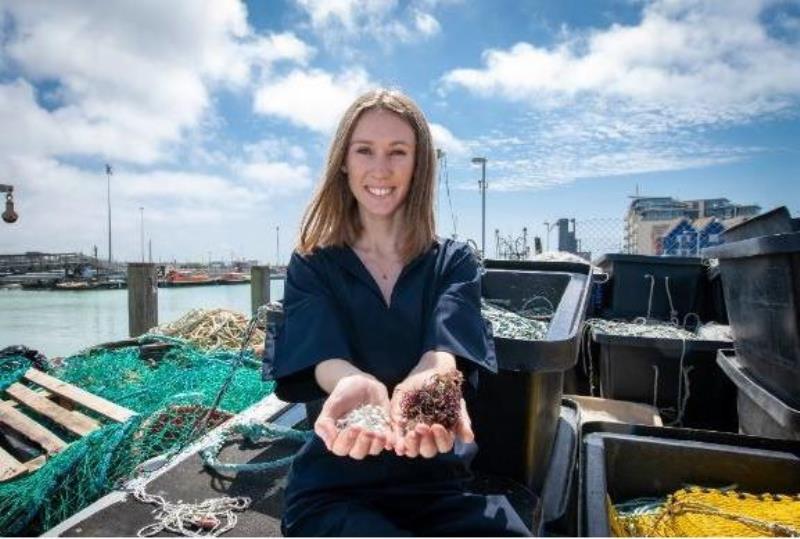
University of Sussex student Lucy Hughes has developed biodegradable plastic using fish waste and locally sourced red algae.
The translucent bioplastic MarinaTex is a flexible sheet material is suitable for single-use plastic packaging applications.

Discover B2B Marketing That Performs
Combine business intelligence and editorial excellence to reach engaged professionals across 36 leading media platforms.
The production of the material requires only ‘little energy and temperatures below 100°C’. The proteins drawn out from organic fish waste such as offal, blood, crustacean and shellfish exoskeletons, fish skins and scales are bonded through a unique red algae formula.
MarinaTex biodegrades after four to six weeks and does not release toxins.
Hughes said: “Plastic is an amazing material and, as a result, we have become too reliant on it as designers and engineers. It makes no sense to me that we are using plastic, an incredibly durable material, for products that have a lifecycle of less than a day.
“For me, MarinaTex represents a commitment to material innovation and selection by incorporating sustainable, local and circular values into design.”

US Tariffs are shifting - will you react or anticipate?
Don’t let policy changes catch you off guard. Stay proactive with real-time data and expert analysis.
By GlobalDataHughes noted that the organic waste created by one Atlantic cod can be used to make as many as 1,400 MarinaTex bags.
MarinaTex is a final year project for Lucy’s Product Design course. She has been declared as the winner of the international James Dyson Award 2019.
Hughes won a £30,000 prize, which she will use to continue further research to make MarinaTex a solution to plastic waste. She also has plans to commercialise the invention.
Sir James Dyson said: “MarinaTex elegantly solves two problems – the ubiquity of single-use plastic and fish waste. Further research and development will ensure that MarinaTex evolves further, and I hope it becomes part of a global answer to the abundance of single-use plastic waste.”





